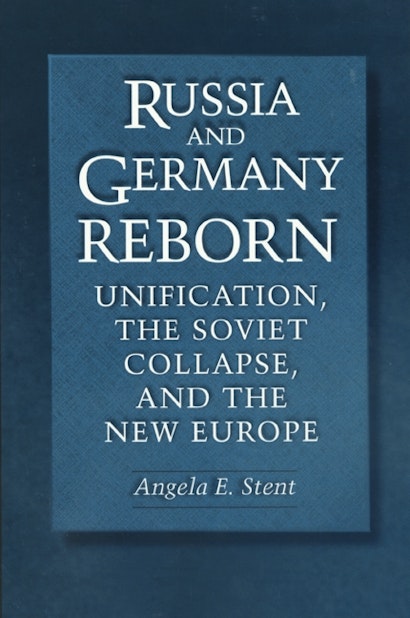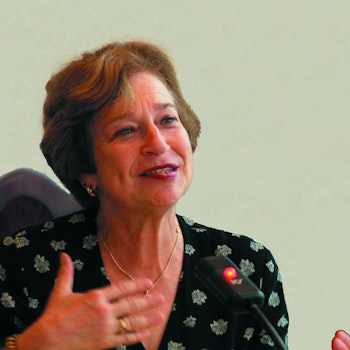The relationship between Russia and Germany has been pivotal in some of the most fateful events of the twentieth century: the two World Wars, the Cold War, and the emergence of a new Europe from the ashes of communism. This is the first book to examine the recent evolution of that tense and often violent relationship from both the Russian and German perspectives. Angela Stent combines interviews with key international figures—including Mikhail Gorbachev—with insights gleaned from newly declassified archives in East Germany and her own profound understanding of Russian-German relations. She presents a remarkable review of the events and trends of the past three decades: the onset of d tente, the unification of Germany, the collapse of the Soviet Union, and the rise of an uncertain new European order.
Stent reveals the chaos and ambivalence behind the Soviet negotiating strategy that led—against Gorbachev’s wishes—to that old Soviet nightmare, a united Germany in NATO. She shows how German strength and Russian weakness have governed the delicate dance of power between recently unified Germany and newly democratized Russia. Finally, she lays out several scenarios for the future of Russian-German relations—some optimistic and others darkened by the threat of a new authoritarianism.
Russia and Germany Reborn is crucial reading for anyone interested in a relationship that changed the course of the twentieth century and that will have a powerful impact on the next.
Angela E. Stent is Professor of Government at Georgetown University. Her previous books include From Embargo to Ostpolitik and Areas of Challenge for Soviet Foreign Policy in the 1980s.
"Stent combines a detailed account of Soviet politics and decision-making up to German unification with thoughtful reflection on why this thoroughly unimagined outcome came about. The prose and tale are highly readable, not least because the gap between the scale of the stakes involved and the drift and lameness of Soviet foreign policy is so stunning. But Stent does not stop here. She traces the Russian-German relationship since unification and ponders the place of both countries in a very different Europe."—Robert Legvold, Foreign Affairs
"[A] concise, well-written, and illuminating study.... Professor Stent is one of the few American scholars who combine expertise on Russia and on East and West Germany.... She has made the most of all these strengths to produce a fine, readable, concise yet comprehensive history.... A well-rounded and well-researched account of the crucial Soviet-German side of the story."—Stephen F. Szabo, Survival
"Excellent.... Understanding the historic transformation of the German-Russian relationship is reason enough to read Ms. Stent's intelligent and perceptive book..... Yet the more compelling reason to read it is for its history."—Frederick Kempe, Wall Street Journal
"This is a book that helps to unravel the puzzle of how the Cold War's unlikely end came about, and suggests directions for future archival research of how a unified Germany and a post-communist Russia emerged, without anybody paying for these astounding transformations with their lives."—Jeffrey Herf, The New Republic
"A highly accessible and valuable account of the German-Russian relationship. Well researched and enhanced by interviews with leading participants, this book's ability to bring order to the complexities of a history marked by so much tragedy and so much potential will be appreciated by students and scholars alike."—James M. Goldgeier, Slavic Review
"Angela E. Stent deftly takes the reader through the complex events that led to the German reunification. It was never as inevitable as it seemed in retrospect. . . . Much delicate diplomatic work was necessary, and Stent expertly chronicles the twists and turns and the interplay of interests."—Ralph Amelan, The Jerusalem Post
"Stent's book is a significant contribution to the field of Soviet-German relations. Her knowledge of Russian and German is a major asset that allows her to use a wide variety of materials that add much to our knowledge of German and Russian policies. The book is indispensable reading for those interested in Soviet policy toward German unification."—F. Stephen Larrabee, International Policy Department, RAND


